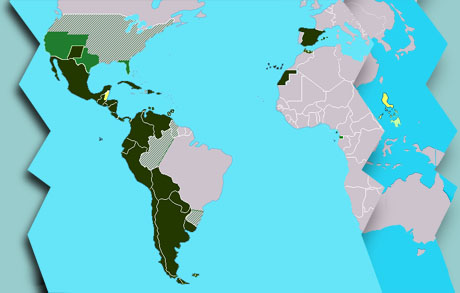Pragmatic Variations
Pragmatic variation examines how language use in context varies during the negotiation of meaning in specific sociocultural contexts, and may reflect different cultural norms.
In this website we will describe and compare four types of pragmatic variation in different varieties of the Spanish-speaking world:
- speech act realization
- speech act perception
- politeness
- conversational organization
Speakers from different regions of one country vary their speech act production (e.g., apologizing, refusing, requesting), perceive speech acts differently, convey and perceive politeness differently, and display different interactional patterns during conversational interaction (e.g., greetings, opening and closing sequences, turn-taking, laughter).
Unlike research in dialectology and sociolinguistics which examines variation at the lexical, phonological, and morpho-syntantic levels, variation in the field of (socio)pragmatics has received little attention1.
(Socio)pragmatic variation examines meaning in interaction and focuses on the negotiation of meaning between speaker and hearer, taking into account the context of utterance, and the meaning of what is being said in social interaction2. The approach taken here is one of intra-cultural variation, that is, a comparison of the interactional patterns generated by one social group (e.g., Mexicans) in two or more situational contexts (e.g., refusing, requesting, apologizing, complimenting).
(in progress)

Mouse over and click a green or yellow Hispanophone country.
For each country you can explore descriptions, comparisons, and audio samples of intra-cultural variation to observe regional variation in pragmatic production and perception across Spanish(es).
